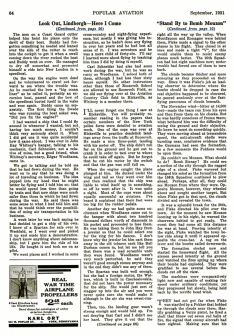Charaiveti is a Sanskrit word that means “March on”1 or “Go on. Do not halt”.2 In the program year 2021–2022, A2K wishes to work more in documenting our learning, and some of the best practices. This effort “Charaiveti” is a part of the documentation.

On 19 – 21 February 2021, A2K conducted Wikimedia Wikimeet India 2021. The Wikimeet was a national-level online meet with different types of program in it such as training, workshop, presentation, brainstorming sessions etc. In this particular blog post we are going to write about a few things we learnt during the preparation of the Wikimeet, or a few learning we applied during the event. However, this writing will go beyond the Wikimeet 2021, as we’ll try to recollect a few learnings from other events, and incidents, as well.
- There is a possibility that you already know many of the things told below.
- The suggestions may also represent particular viewpoints and may not be applicable everywhere.
However, if you are conducting an event (such as organising a workshop, edit-a-thon) or if you are working on a program (such as establishing a committee), possibly you might find some of these organised suggestions helpful. All the suggestions below should be read together, as some of those are interconnected.
Table of Contents
1. “Why?” Start with answering “why“?
In November 2018, we conducted an advanced Wikidata training session in Mumbai. One evening, after a long training day, we were continuing our post-event lightweight conversation with Asaf Bartov, the primary trainer of the workshop. During the talk Asaf pointed out that it is really important to explain the question “why”. Regardless of the scale and nature of a program or the amount of investment, we should first answer the question “why?”, “why is this important?” Let’s explain this further. Perhaps—
- You want to show us a Wiki-tool? Tell us “why” is it important to learn it?
- You want us to join a committee or promote any program/campaign among our community? Tell us why is it important?
Once we clearly answer this “why” question to ourselves first and to the participants, we think we can expect a lot more meaningful participation. Unfortunately, a few times when we see invitations to contribute to something, we do not understand “why”? We hope you have had the same feeling as well. Please do not consider that things are already understood, it is good to explain.
Addition: Later we got to know that “Start with Why?” is actually a popular learning. There is a book also Start with Why: How Great Leaders Inspire Everyone to Take Action written by Simon Sinek, which you may consider reading.
2. The Tea-preparation story

Ashwin Baindur is an experienced Wikimedian from India. He has been contributing to Wikipedia for several years now and we have learnt different things from him. He once told us a story which definitely helped us in our programs and events preparation. He told, “think of a simple thing like “tea-preparation”. When you prepare tea you have multiple steps such as— you put water in a kettle, you heat the water, you put milk in it, you wait for a few minutes etc. So you have a checklist and a logical sequence.”
Similarly when you do an event, you should have a checklist prepared with logical sequence. Sending message to mailing list, sending message to village pump, needs-assessment, does your event require a banner or central notice, reminders, co-ordination with committee, logistics preparation etc — you may prepare your own checklist, but this really helps you not only to plan but also to execute your the plans better.
3. Deadline = “Dead” “line”
After the “checklist” point, let’s directly come to “deadline”, as “checklist” tasks should meet deadlines. A good friend Tanveer Hasan says “feedback are sacred”. We agree to that. We also believe that “deadlines are sacred”. By definition a “deadline” is supposed to be a “line” beyond which one should be “dead”, is not it so? Deadlines should be taken very seriously. There may be exceptional situations but an exceptional situation does not occur everyday. If you want to understand how bad a program or a team is doing, there are several ways to understand this. In our opinion, one of those ways is, see how many times a deadline is missed. If you see a program did not work well, most probably one of the several indicators you would notice there that things were not punctual. Punctuality and completion of checklist tasks in timely manner definitely help to execute any Wiki-plan in a better way.
4. Message without any action point and TLDR
When we were preparing for Wikimedia Wikimeet India, we were writing a few blog posts. That time we drafted a blog post and a large part of the post was something like “in seven days we’ll start RfC, in ten days something is going to come” etc. Before circulating we thought to show the draft to Asaf Bartov. Asaf quickly read the draft and one of the things he told us— “So a person — especially those less fluent in English — would have to read a fairly long page to realise that “something is basically planned and coming”, that’s it!” So, we were going to send a long Wikimedia Wikimeet message without any “action point”. Asaf further added, “it makes sense to point people to things when they can engage with them immediately. Else people might forget and move on”. We understand sometimes it is good to announce well in advance, for example people would definitely love to know about Christopher Nolan’s next movie. However we are not Christopher Nolan, and until we become as popular, or unless an event really demands, most possibly this learning is helpful. We have followed this in Wikimeet and other events. Let’s jot down the learning points and questions here:

- Are we going to send a long message to the readers?
- Are we sending the message only in English, specially if we have non-native English speakers as our readers?
- Is there any action point or point of engagement?
- Did we clarify why is this important or why should the readers get engage here?
You may consider running a similar checklist.
- You may send messages in regional languages
- You may send your messages in different formats such as an infographic, video message, voice message, animation etc.
You need to decide yourself how will you share your message, in which format, will you send a reminder or not, how will you add some personal touch? However if you want to convey your good message in a better way with effective engagement, that would definitely need some preparation and brainstorming.
5. The extra-ordinary power of peer-promotion and community engagement
For any event and especially large-scale events or campaigns that involves many Wikimedians or people from different-language communities, you should definitely prepare a promotion strategy. One thing you can do is, take a top-down approach, go to all the communities, and mailing lists and announce yourself. The process helps to some extent. In addition to that you may also involve community members and ask them to share the news. Please understand, people won’t get involved in a plan only because you or we are asking them to do so. There must be reasons clearly and honestly narrated (please see also #1, and #6 in this post). However, if you can effectively involve the communities and community leaders in your plan, the program/event will be much better and satisfying. At Wikimeet or at Stay Safe, Stay Connected, we have tried this, but honestly speaking, we could do better, and possibly we have more to learn here. However, we definitely realise the extra-ordinary power of peer-promotion and community engagement. If you have suggestions, please let us know in the comment section below or on Meta-Wiki.
6. Takeaways and the Helping hand story
This last point is similar to the very first point, however we are going to briefly mention it as well. Very recently we were promoting Stay Safe, Stay Connected, a lightweight discussion-based Wiki-event. Before one of the sessions, we phoned a Wikimedian from South India and asked “hey, we are doing this, would you like to attend?”. Our good friend asked me, “Tell me what are the takeaways?” We know we should always be prepared for this question, but frankly speaking, that day we were not expecting this question, so we gave a “not so convincing answer”. Next day, with preparation, we called him again and told, “Yesterday you asked us a question, we want to try to answer it one more time. We feel that you should attend this session because a) you will get to know from “this”, “this” community, b) we will brainstorm and discuss “this” and “this” topic, which match with your interest area, c) most probably Bangladeshi Wikimedians are going to talk about their district-level outreach work, the decentralised outreach story is not much known to us… … … likewise we gave him six bullet points or six reasons of attending and after that he told that he was feeling interested.
An old Orkut3 friend (didi) I knew used to say— “अगर तुम्हारा हाथ आगे उठें तो वह हाथ, देने के लिए उठना चाहिए, ना की लेने के लिए”4 (“If you put forward your hands, it should be done to offer things, and not to ask for things”). If you want others to join and contribute, don’t just think what your program or you are getting from them. Please find a good, convincing and honest answer “what are they getting?”, “what you have to offer to them?” and “what are their takeaways?”
In this blog post we tried to narrate5 a few learnings which we believe helped us to plan and conduct events like the Wikimeet. In future, we may write separate blog posts on specific topics and aspects of conducting an event or program.
Until then,
Charaiveti, Charaiveti…
References
- Raj Kumar; Raj Pruthi (2003). Essays on Indian Culture. Discovery Publishing House. pp. 182–. ISBN: 978-81-7141-692-9.
- Mahatria Ra (2015). Most and More (English). MANJUL Publishing House. pp. 157–. ISBN: 978-81-8322-574-8.
- Orkut was a social networking site, like Facebook. Orkut was popular in Brazil, India etc. Learn more on Wikipedia.
- Attribution: Hindi text typing/accuracy check credit: Jay Prakash.
- Improvement suggestion: Asaf Bartov
[This blog post also has long-text, and is in English. If you found this blog post interesting/helpful, please do a favour. You may help by sharing this post so that it gets its reader(s), and by translating it to your language. Please contact over email, if you want to write a translated blog post on Diff. The translated post will be published with full attribution.]

Can you help us translate this article?
In order for this article to reach as many people as possible we would like your help. Can you translate this article to get the message out?
Start translation